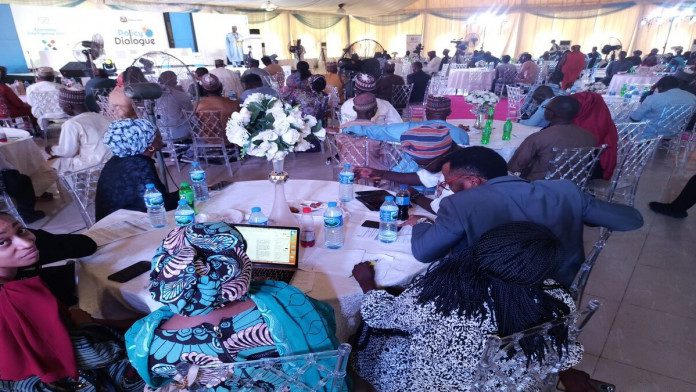News in Brief:
Kaduna state owed 43% of its GDP to the agricultural sector as the government targets empowering farmers and reducing post-harvest losses by distributing farm inputs and building rural roads to improve market access.
The Kaduna state government in Nigeria is placing agriculture at the forefront of its development plans, acknowledging its critical role in the state’s economic well-being. This focus was recently highlighted in a policy dialogue titled Agriculture and Rural Economic Development Agenda.
Murtala Dabo, Commissioner for Agriculture in Kaduna State, emphasised the significant contribution of agriculture to the state’s economic strength and revealed that sector accounts for a staggering 43% of its Gross Domestic Product (GDP).
Also, Dabo outlined several initiatives aimed at supporting farmers like the recent distribution of essential farm inputs like fertilisers and agrochemicals.
Additionally, processing equipment and grinding machines were distributed across various local government areas. Recognising the specific challenges faced by women in agriculture, the government also provided targeted support for poultry and fishery projects in Barnawa.
Rural renewal: building roads for improved market access
Meantime, a cornerstone of the government’s strategy is the construction of rural roads. Following urban renewal projects, this initiative is aptly named rural renewal.
To this end, Commissioner Dabo highlighted the Rigachikun-Baraje road project as a prime example. This critical infrastructure development will directly benefit 42 farming communities by facilitating easier transportation of produce to markets. This, in turn, is expected to significantly reduce post-harvest losses currently experienced by farmers.
Additionally, according to the commissioner, the planned commissioning of another rural road project soon, is a testament to the government’s commitment to improving market access for farmers throughout the state.
Meantime, the 4th Economic Intelligence Unit Policy Dialogue served as a valuable platform for discussing these agricultural development initiatives.
Stakeholders from academia, the private sector, agricultural entrepreneurs, and civil society organisations participated in the dialogue, offering insights and recommendations to guide the government in effectively implementing its development agenda.
The dialogue’s outcomes will be carefully reviewed, and a white paper will be developed to inform future policies and actions aimed at strengthening the agricultural sector in Kaduna State.



